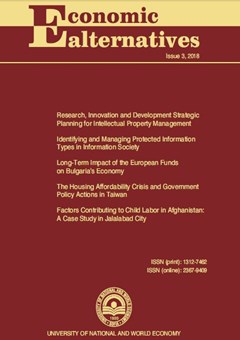Identifying and Managing Protected Information Types in Information Society
Author: Nikolay Krushkov
Abstract
With the cosmic development of information technology and global information connectivity, there was a new transformation at the turn of the 21st century when the transition of “industrial society” into an “information society” has begun. A new characteristic feature of knowledge-driven labor in the information society was the application of new knowledge to existing knowledge as the main source of productivity. Information management requires proper identification of the type of information its provision and protection, both at state and corporate level. On the one hand, it is of crucial importance to obtain information on prices, quantity and quality of goods and services (at corporate level) or on the development of state-relevant internal and external processes and threats (at state level). On the other hand, it is equally important that the provision of information from individuals, enterprises and the state is realized with the guarantees of preserving the personal rights of individuals, the competitive advantages of business entities and national interests. The efficiency of the management requires a flawless recognition of the types of information: state and official secrets; industrial and commercial secrets; intellectual property; know-how; general (day-to-day) business information; other protected personal information.

